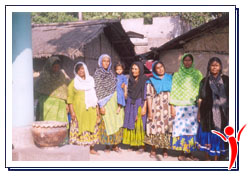
Over two dozen individuals from the so-called “Irani Basti” area have been asked to submit documents validating their Indian citizen status, despite many families having established roots in Kishanganj for more than four decades. The notifications have stunned residents who say prior generations voted and held business interests without contention.
Election officials assert that the SIR process aims to weed out anomalies in the voter list and has targeted nearly three lakh people across Bihar judged to have “doubtful citizenship” status, particularly in border districts including Kishanganj.
Community members say the treatment appears selective. Among those who have received notices is Haider Ali, whose mother’s name appeared in electoral rolls in 2003 before being dropped in 2005. He contends that his family has submitted all required documentation in prior rounds, yet names continue to be deleted. “My ancestors were not foreigners — we have lived, traded and voted here for generations,” he told local reporters.
Some residents fear the demands could effectively force them into proving lineage through isotope tests or DNA, a suggestion that has sparked outrage. One man remarked: “If DNA is demanded, we may have to exhume graves.” Another, Shahina Parveen, said the obscuration of her father’s details from the voter list is already impeding her academic aspirations.
Local political actors have weighed in. BJP leader Sushant Gop confirmed that 28 individuals in Irani Basti received notices and said that their names have not yet been removed from the rolls—they have merely been asked to furnish citizenship evidence. The RJD’s Mojahid Alam urged those served with notices to present documentation under the Supreme Court’s directive and defended their electoral rights.
The broader SIR campaign, triggered by the Election Commission’s June notification, stipulates that all voters whose names do not appear in the 2003 electoral register must provide one of eleven specified credentials to qualify. Traditional proofs like Aadhaar, ration cards or the earlier voter card are disallowed under this format. The deadline for submission was set to July 25.
In previous rounds of the drive, officials said they issued notices to roughly 3 lakh people across the state whose citizenship was flagged as doubtful. Districts along the border—such as East Champaran, West Champaran, Purnia and Araria—have seen the heaviest scrutiny.
Civil society groups and opposition parties argue the SIR exercise disproportionately affects vulnerable communities—migrants, minorities, and residents in remote areas—who may lack the mandated documents. Allegations have surfaced of officials refusing forms, misplacing submissions or failing to accept paperwork from those deemed politically nonaligned.
